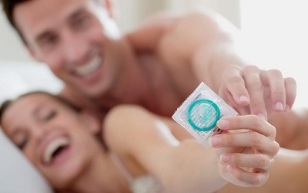People with prostatitis have doubts about whether it is okay to have sex. This is a sensitive issue that must be resolved. In this article, you will learn how intimate relationships affect the disease, how and how much you can have sex, and when it is prohibited.
The prostate gland undergoes inflammatory processes in more than half of men, so the issue of sex with prostatitis is very relevant. In addition, the pathology is accompanied not only by painful urination, but also by impaired sexual functions (decreased libido and potency).
The effect of sex on prostatitis
Most of the time, men believe that it is impossible to have sex with a prostate disease. But this is a wrong opinion, because sexual contact has the most beneficial effect on potency and healing processes.
Prostatitis is known to arise from lack of sex and engorgement. This is due to the fact that during ejaculation, secretion is released, as a result of which the amount of testosterone (male sex hormone) produced increases. Also, regular sex has the following effect:
- prostate juice is actively produced;
- blood circulation in the prostate gland is restored;
- semen removes decomposition products from the inflamed area;
- improves cell and tissue nutrition, due to active blood supply;
- the prostate is massaged in the context of muscle contraction;
- the pain syndrome decreases;
- erectile function is improved.
In acute form
When prostatitis is acute, drugs do not recommend sexual intercourse. The reason for this is the intense pain that will intensify during intercourse and ejaculation. Also, the pain is felt even at rest. And the man will not receive pleasure during the period of exacerbation.
For chronic form
In the case of a chronic course of the disease, sexual intercourse is shown, on the contrary. Also, sex should be as regular as possible. Pain during this period does not appear, the man experiences pleasant sensations.
The only drawback is the weakening of the erection. But this can be corrected if you adhere to all the recommendations of the experts. And especially when it comes to the psychological aspects. Because in this context, the husband avoids contact with his wife, and this leads to the development of new stagnant phenomena. Consequently, the disease progresses with renewed vigor.
But it is also not recommended to have excessive sexual intercourse, as the inflamed prostate cannot withstand significant loads. Therefore, you must adhere to the golden mean.
Sex after therapy
If the prostatitis was not in an advanced degree, conservative methods are sufficient for treatment. In this case, after a full recovery, intimate life improves on its own. But if radical methods of therapy were used (removal of the prostate gland), you will need to adhere to these rules in order to resume sexual intercourse:
- intimate life can be resumed between 30 and 50 days after surgery;
- physical activity during rehabilitation is excluded;
- physiotherapy is desirable;
- you need to visit a psychotherapist to restore the psycho-emotional background.
The prognosis of the return of male strength depends largely on the surgical method used:
- after transurethral surgery in 90 cases out of 100, potency is resumed, but it becomes impossible to conceive a child, since ejaculation takes place in the bladder;
- after open prostatectomy, intimate life is improving;
- If the prostate gland is removed with a laser, sexual life is also restored.
When a man had total impotence before the operation, the erectile function does not fully recover after the surgery.
When is it forbidden to have sex with prostatitis?
As mentioned above, it is forbidden to have sex during an exacerbation of the disease, as a man will experience excruciating pain and the symptoms that appear will worsen.

But there are other situations where sex has a negative impact:
- The bacterial type of prostatitis in acute form leads to the spread of the inflammatory process to other organs of the small pelvis, the kidneys. In addition, there is a risk of infection from the partner. For these reasons, complete abstinence is required until recovery.
- The presence of female diseases in the couple, especially the bacterial form.
- In the absence of ejaculation during intercourse. Sperm produced by the prostate stagnate in the organ, aggravating the patient's condition.
- When women change frequently. The point is that each person has their own genital microflora, to which the male body must adapt. If you constantly change it, the prostatitis is aggravated and complicated - the inflammatory process does not allow it to change quickly.
- Too frequent contact leads to increased stress on the prostate gland.
- Sex interrupted. In this case, the prostate is not completely emptied, and the semen remains contribute to the multiplication of pathogenic microorganisms.
- Inflammatory processes in the tubercles and seminal vesicles: there will be pain.
- An abscess in the prostate causes blood intoxication, as the capsule can burst and pus will enter the bloodstream.
- Presence of stones in the prostate (they will damage tissues and blood vessels).
- The formation of a cyst is dangerous because of its rupture and internal bleeding.
How often is sex recommended for prostatitis?
During intimate mating, the prostate produces ejaculation, which contains many nutrients that saturate the male genitalia. After ejaculation, semen begins to be synthesized again, so sex must be present in the life of a patient with prostatitis. But how much should there be? In fact, there are no standard standards, so every man is obliged to have sex as many times as before the disease. But it should not be less than 3 or 4 times a week.
Psychological aspect
A disease like prostatitis often leads to a cooling of feelings in a married couple, because a man's potency decreases. Against this background, he begins to fear intimate relationships, which affects the psychological state.
Constant fears significantly weaken libido, speed up the ejaculation process and reduce erection. To prevent this from happening, the man and his partner must tune in to a positive outcome. A woman is obliged to encourage her husband and not stop having sex with him. Otherwise, the husband will give preference not to sex, but to other activities: he will find a new hobby, start drinking alcohol, which will even worse affect the inflamed prostate and psychological history.
This leads to progression of pathology, external irritability and even aggression, and stagnant ejaculation will lead to nocturnal emissions. If a couple cannot cope with psychological problems on their own, they will have to seek the help of a specialist - a sexologist, psychotherapist or psychologist. Medical assistance from such doctors is also necessary in cases where a man does not have a permanent partner who treats the problem with understanding.
You can go to a sexologist on your own, but it is better if your wife also visits, because the specialist will teach her the correct tactics of behavior.
Contraception for prostatitis

A condom for prostatitis should always be in the bedroom of a married couple. This is due to the fact that the female microflora with inflammation of the prostate can have a negative effect, as it contains conditionally pathogenic microbes that easily penetrate the canal and the urethral gland.
Contraception is used not only for normal sex, but also for oral and anal sex, because microorganisms are also present in the oral cavity and rectum, and in large numbers. These bacteria have a strong microbial load that the reproductive system cannot cope with.
Anal sex with prostatitis
It is not prohibited to practice anal intercourse with prostatitis of the prostate. Therefore, you can safely do this with a woman. If we talk about representatives of non-traditional orientation, then a sick man, being passive, can also engage in anal sex. In addition, this process favors prostate massage. But you should know that massage with the genitals through the rectum does not have a strong therapeutic effect, unlike massage performed with the finger of a qualified specialist.
When anal sex is contraindicated:
- The patient should monitor the state of the prostate; If symptoms begin to intensify, anal stimulation will have to be abandoned, because the inflamed gland becomes irritated and swollen.
- If a man uses rectal suppositories for treatment, anal intercourse is contraindicated. The fact is that many suppositories contain substances that damage the latex (condom material). This leads to a new infection and it is strictly forbidden to have anal sex with prostatitis without contraception.
- You will have to reject contacts if there is an oncological tumor in the prostate or stones.
Is masturbation allowed?
Based on the above material, it is clear that you need to have sex during the remission period of prostatitis. But, on the other hand, it is not desirable to change partners. And many representatives of the strong half of humanity are embarrassed to have sex with a new partner due to a weakened erection. Then the question arises: what should a man do who has no wife? The answer to such an intimate question is ambiguous:
- Old-school doctors categorically do not welcome this kind of activity, relating it to the fact that with prostatitis, a person should not overload the body. It shows you good rest, peace.
- Modern medicine dictates its own rules: masturbation is useful. In fact, with prolonged abstinence, the male reproductive system suffers atrophy. Stagnation progresses in it, against the background of which pathological disorders such as cancer, thrombosis, etc. develop. Also, the stagnation of semen in the body causes infertility and total impotence.
Therefore, if a man has a regular partner, he can refuse to masturbate, engaging in traditional types of sex. But if there is no partner, then it is better to use self-gratification.
If a man is diagnosed with prostatitis, but not in the acute stage, he should not refuse sexual intercourse. But this must be done correctly and after consultation with the treating andrologist. It is the doctor who will give specific recommendations on the frequency of the act, depending on the course of the disease.


























